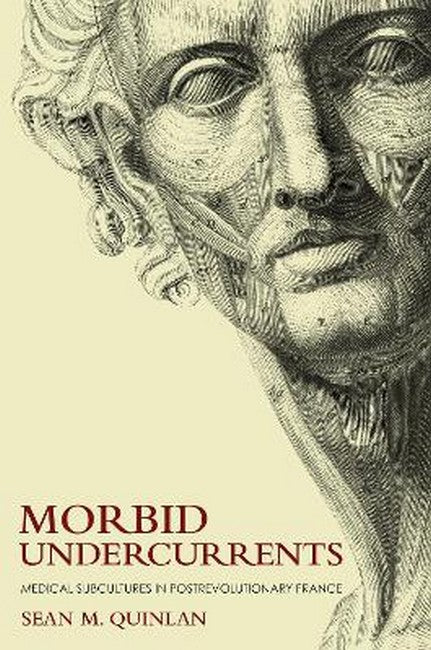Sean M. Quinlan is Professor of History and Dean, College of Letters, Arts, and Social Sciences, at the University of Idaho. He is author of The Great Nation in Decline.
Request Academic Copy
Please copy the ISBN for submitting review copy form
Description
Introduction: Morbid Undercurrents- Medicine and Culture after the Revolution 1. Settings: The Cultural World of Medical Practice, ca. 1750-1800 2. Medicine in the Boudoir: The Marquis de Sade and Medical Understandingafter the Reign of Terror 3. Writing Sexual Difference: The Natural History of Women and Gendered Visions, ca. 1800 4. Seeing and Knowing: Readers and Physiognomic Science 5. Sex and the Citizen: Reproductive Manuals and Fashionable Readers under the Napoleonic State 6. Sculpting Ideal Bodies: Medicine, Aesthetics, and Desire in the Artist's Studio 7. The Mesmerist Renaissance: Medical Undercurrents and Testing the Limits of Scientific Authority 8. Physiology as Literary Genre: Passions, Taste, and Social Agendas under the Restoration and July Monarchy Epilogue: Medicine, Writing, and Subculture after the Revolution
Quinlan's illuminating and thoroughly researched study makes a comprehensive case for the ways in which political upheaval not only galvanised connections between the 'two cultures' of science and the arts at the beginning of the long nineteenth century in France, but how the work of some lesser-known physician-writers, inspired by rather unconventional medical ideas, had a significant ideological impact on attempts to reimagine the body and self in a rapidly changing society. (Modern and Contemporary France) Medical historians and revolutionary historians will find Morbid Undercurrents entertaining, informative and useful. They will also admire Quinlan for his ambition in tackling such a wide-ranging history. (HISTORY: Reviews of New Books) A richly researched and long-considered book; in its careful contextualizing, nontechnical language, and pedagogic tone, Morbid Undercurrents will lend itself well to course reading assignments for those teaching history of science and medicine. (Isis: A Journal of the History of Science Society) This study is a compelling cultural history of weird science that could only have thrived, as Quinlan notes, 'in the cultural anarchy and porous medical world of the post-revolutionary period.' (Social History of Medicine) This book provides an entertaining and wide-ranging account of its subject. (H-France) Sean Quinlan's new monograph aims to shed light on aspects of nineteenth-century French medicine that are sometimes overlooked in accounts of the major transformations which that field underwent in the tumultuous aftermath of the French Revolution. Morbid Undercurrents reflects its author's deep commitment to making sense of the many and varied medical genres and subcultures that proliferated in postrevolutionary France. (Journal of Modern History)

